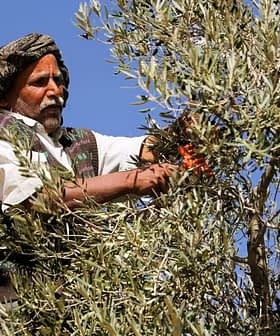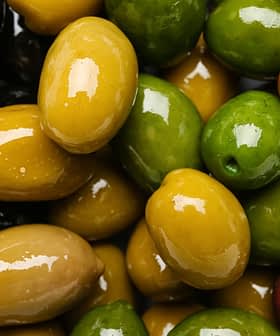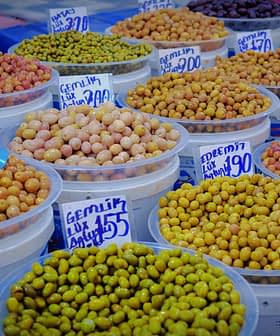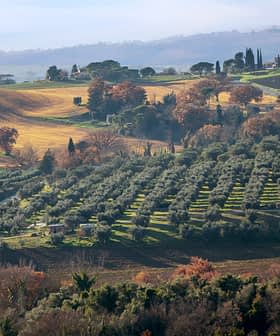Spanish Black Olive Exports to U.S. Halved Since Tariffs Imposed
Since tariffs were imposed in August 2018, Spanish olive producers and exporters have lost more than $50 million.
The imposition of tariffs on black olive exports by the United States has resulted in a €45.5 million loss for olive growers and packers in Spain, with a decrease of 50 percent in black olive exports to the U.S. between January and July 2019. Despite efforts by the European Union to challenge the tariffs through the World Trade Organization, Spanish producers are struggling to recover lost ground as rival exporters from Egypt, Morocco, and Portugal have seen significant increases in their olive exports to the U.S. since the tariffs were imposed.
Olive growers and packers in Spain have lost €45.5 million ($50.1 million) since the imposition of tariffs on black olive exports by the United States last year, according to the Spanish Association of Exporters and Industrialists of Table Olives (Asemesa).
Spain’s leading table olive producer association said expected income from black olive exports to the U.S. fell by €17 million ($18.7 million) between January and July 2019. This came as producers shipped 8,325 tons of black olives to the U.S. in the first half of the year, a decrease of 50 percent compared with the same period in 2017.
There are companies that have lost almost 30 percent of their turnover.
Additionally, an estimated €28.5 million ($31.4 million) loss was incurred between August 2018, when the tariffs were imposed, to the end of the year.
This lost business is hitting all types of olive producers, from small family-owned farms to large industrial packers. Antonio de Mora, the secretary-general of Asemesa, told Olive Oil Times that lost revenue is expected to continue accruing as long as tariffs remain in place.
See Also:Tariffs News“Given the lower demand for black olives in the past campaign, the prices of the varieties used to produce black olives dropped more than 20 percent in the field and this year the same or more will happen,” he said. “There are companies that have lost almost 30 percent of their turnover.”
Away from the tariffs, Asemesa has already spent €5 million ($5.48 million) on legal fees and is expected to spend another €2.5 million ($2.74 million) before the process is over.
The European Union has also filed a complaint on behalf of olive producers with the World Trade Organization and a panel has been formed to review whether there is a legitimate basis for the tariffs.
De Mora believes that the WTO will ultimately rule in favor of the E.U. and Spanish olive producers, though these processes generally take a long time to play out.
“We are confident that this will be the case even though it is a long and complicated process,” he said.
The process has been made even more complicated by the U.S., which has blocked the appointment of new judges to the supranational body, delaying the procedure of hearing and adjudicating new complaints indefinitely.
Prior to the imposition of the 27 percent tariff, Spain supplied the U.S. with more than three-quarters of American black olive imports.
This figure has since fallen to just 36 percent and created a vacuum into which some of Spain’s table olive exporting competitors have stepped.
While Spanish exports were halved, rival exporters have seen their combined exports to the U.S. increased by 260 percent. Egypt, Morocco and Portugal have all experienced massive bumps since tariffs were imposed.
Morocco has been the biggest winner so far, with exports growing by 460 percent. Meanwhile, Portugal and Egypt have also experienced increases of 189 percent and 149 percent, respectively, over the same time period.
De Mora thinks that if the tariffs are reversed quickly then Spain will be able to reclaim its lost ground. However, if the tariffs drag on, he fears the U.S. market could be lost to the aforementioned competitors.
“If we get [a favorable ruling] soon, surely yes [Spain can reclaim its previous market share], but if the tariffs are maintained it will be impossible to recover the position in the market,” he said.
However, European officials already believe that these tariffs will be difficult to reverse. Earlier in the week, Cecilia Malmström, the outgoing European Trade Commissioner, sounded pessimistic about the possibility of getting the U.S. to retract the tariffs.
“We are discussing a way to end these tariffs with the United States, so far without success,” she said at the New Economy Forum in Madrid.
In the meantime, de Mora and others in the olive sector are calling on more support from the E.U. and Spanish government. Many producers are already looking for new markets for their black olives, which is also a slow process.
“In the short and medium term it is impossible [for producers to find new markets for their olives] although companies are doing everything possible to increase their sales without falling into a price war in other markets,” de Mora said.
He added that the Spanish government and E.U. should set up a fund to aid and compensate the losses that have already been incurred by producers, which has not yet happened.
“We do not understand why neither the E.U. nor Spain is helping us in this,” de Mora said.









